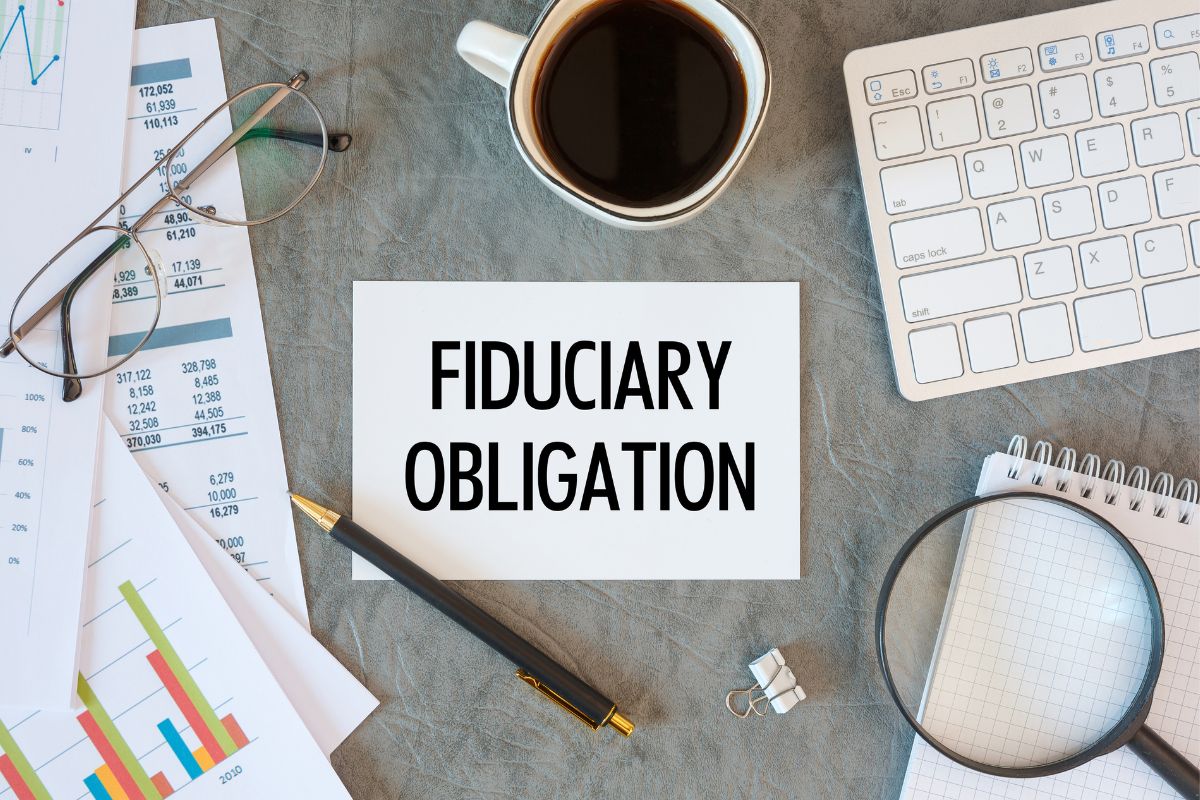Are you looking for someone who can help you invest your money? Finding the right financial advisor can be like driving on the open road. You’re bombarded by flyers, advertisements, and promises as much as the roadside signs and billboards you pass on a road trip. Navigating all the financial choices doesn’t have to be overwhelming, because there’s a clear choice among consumer advocates and that’s a fee-only financial advisor. There are many ways they put your financial interests first.
How do financial advisors make money?
When you’re planning for retirement, you need to be aware of how financial advisors get paid, because it impacts fees you may or may not pay as the client or investor.
The way the advisor makes money can also impact the financial advice you receive, and the products the advisor recommends you invest your money in.
There are three ways financial advisors make money:
- Fee-only
- Commission
- Fee-based
While fee-only and fee-based sound the same, there is a big distinction.
A fee-only advisor offers transparent pricing for clients. Fee-only planners are paid by you, the client or the investor.
They may charge an hourly rate, a flat fee, a retainer, or a percentage of your investments.
On the other hand, a commission-based advisor gets paid when he sells financial products. This may cause him to steer you in one direction or another, because of compensation or commissions he/she may earn for the sale of that investment vehicle.
The third option sounds like the first, but the two should not be confused. A fee-based advisor (not fee-only) can earn commissions and fees. However, the advisor can’t earn the two sources of income on the same product.
Why use a fee-only advisor?
Since you (the client) pay a fee-only advisor, you’re getting steered toward the best products for you rather than the products that will deliver the best returns for the advisor’s bottom line.
There are no conflicts with regard to fees since they are transparent.
Consumer advocates, including Consumer Reports, agree a fee-only financial advisor is best.
The National Association of Personal Financial Advisors (NAPFA) also holds the position that Fee-Only compensation is the most transparent and objective.
With a fee-only advisor, you're getting investment and financial planning that only benefits you and your retirement goals. That's why Open Road Wealth Management is a fee-only advisor in Kansas City.
Financial advisor fees
Since you pay the cost of hiring a fee-only advisor, you may be wondering about financial advisor fees that you’ll pay.
While there’s no set price associated with a fee-based financial advisor, there are some data points that can help you estimate costs.
First, let’s explore the costs associated with hiring a fee-only company that charges a percentage of the assets it will manage. This is often called assets under management (AUM).
An Advisory HQ 2021 report found the fees for a portfolio of $50,000 are 1.18% or about $590 annually.
Typically, the more you invest, the lower the fees.
If you have a million dollars of assets under management, the fees average 1.02% or about $10,200 per year.
While $10,000 may seem like a lot, think about how much you could gain on that million-dollar investment with a trained professional making decisions for you.
Obviously, inflation has hit the U.S. hard and the price of goods are up requiring more mindful spending, but cutting back on your financial future (retirement and other investments) should not be something you cut unless absolutely necesarry.
While the percentage fee is a common fee structure, a fee-only financial advisor may also charge additional hourly, monthly, or per-project fees.
These rates can vary by advisor, as each one may offer different services. The fees can also vary based on the complexity of your financial situation or geography.
For example, the cost of living in the Midwest is less than on the Coast, so you will likely pay less when hiring a fee-only financial planner in a city like Kansas City versus a major metropolitan city on the East or West Coast.

Form ADV
If you’d like to confirm the fees your advisor charges, ask for a fee schedule or look at Form ADV. Companies file Form ADV with the Securities and Exchange Commission. Look at Section 5 of Form ADV and Part II for details on the fees. Here’s the ADV for Open Road Wealth Management. You can also see the company brochure.
You can also view these forms on the Investment Advisor Public Disclosure website through the SEC. Search the advisor’s name, click on more details, and then scroll down to current registrations and click on the company name. There will be a tab in the middle of the page that says “View latest Form ADV Filed.”
Since there is such a big distinction between how an advisor is paid, you should ask your advisor about fees and these other questions.

Fee-only fiduciary financial advisor
In addition to the fee structure, there are other advantages to hiring a fee-only financial planner as an investor who is trying to maximize retirement income or achieve other investment goals,
Fee-only financial planners are also “fiduciaries” all the time. That’s not the case for all financial advisors.
Perhaps you’ve heard the word “fiduciary” but are not sure what it means.
A fiduciary must act in good faith and in the best interest of the other party. In business, there are lots of people who have fiduciary responsibilities including a trustee, board member, lawyer, and fee-only financial advisor.
As a fiduciary, the fee-only advisor has a legal and ethical responsibility to the client. Personal interests are always less important than the clients, even if there’s a conflict between the two.
Fee-only financial advisors are also called fee-only fiduciary financial advisors because they have transparent pricing and don’t receive kickbacks or commissions for selling a product. They always have your best interests at heart.
The White House Council on Economic Advisors reported in 2015 that investors lose $17 billion a year from non-fiduciary advice. That’s because a non-fee only advisor may steer you toward financial products that are not in your best interest but are in the best financial interest of the advisor selling that product.
With a fee-only advisor, you know your advisor always acts as a fiduciary and puts you first because you pay a fee. There are no hidden fees, commissions, or conflicts of interest. What you see is what you get.
The advisor steers you in one direction. That’s the direction that’s best for you, the investor.

How to find a fee-only fiduciary
When you’re ready to find a fee-only fiduciary, look to reputable professional organizations.
Just like there are lots of ways a financial advisor can collect fees from you and thus make money, there are lots of organizations to which the planner can belong. But they are not created equal.
Whether you live in Kansas City or elsewhere in the United States, you can find a fiduciary financial advisor by looking for a fee-only advisor. Several professional financial organizations, of which Open Road Wealth Management is a member, make it easy to find someone to help you with your retirement planning and investments.
Let’s explore some of the financial professional organizations.
XYPlanningNetwork
If the advisor is a member of the XYPlanningNetwork (XYPN), the advisor goes the extra step in signing a fiduciary oath.
In the XYPlanningNetwork, there are no commissions, no sales, and no minimums.
You can find a fee-only financial advisor to help regardless of your age or assets. XYPlanningNetwork advisors focus on working with Generation X and Y investors.
Certified Financial Planners
Consumer advocates agree, including Consumer Reports, that you should look for “Certified Financial Planners.” These planners agree to strict ethical standards and act with your best interests in mind. The certified financial planner must pass a difficult and detailed exam (CFP Certification Exam), and meet other educational standards.
When you search for a Certified Financial Planner, you will see how the planner is compensated. CFPs can get paid in a variety of ways, so you will find more than just fee-only advisors on this list.
NAFPA-Registered Financial Advisors
The National Association of Personal Financial Advisors (NAPFA) is another resource to find a financial advisor.
To earn the NAPFA-Registered Financial Advisor title, an advisor must meet high professional and ethical standards. The qualifications are so strict more than half of those who want to join the NAPFA network are denied when they initially apply.
NAPFA believes fee-only compensation is the “most transparent and objective method available.”
YOU are the focus of NAPFA-Registered Financial Advisors. These advisors are fee-only fiduciaries all the time.
Open Road Wealth Management is also a member of NAFPA. You can find an advisor by searching the NAFPA database with your ZIP code.
Since we are looking at your investments holistically, at Open Road Wealth Management, our software tracks your assets and liabilities in one spot. This is done even if your funds are in different investment accounts. Organization is often the biggest obstacle to overcome.
Fee-Only Network
FeeOnlyNetwork.com also provides individuals and couples interested in retirement planning an easy way to find a vetted financial advisor with transparent fees and a legal obligation to offer unbiased financial advice.
Fee-only advisors who are only compensated by the client and never with a commission.
They also do not receive brokerage firm kickbacks.
In the Kansas City area, there are only a handful of FeeOnlyNetwork advisors, including Open Road Wealth Management.
You can find an advisor near you with the FeeOnlyNetwork.com ZIP code database search.
Finding an advisor that meets your goals
You want to ensure your advisor has no conflict of interest. He should make all decisions based on your best interests rather than the advisor’s interests to earn a living. Fee-only advisors offer unbiased advice.
Once you find an advisor that has the qualifications you’re looking for or belongs to a reputable professional organization that speaks to the ethical standards and fee transparency you’re looking for, you should schedule an appointment with the advisor and talk about your goals.
These are the questions you’ll want to ask and the questions to avoid.
Have a thorough conversation with the advisor to ensure you’ll reach your retirement goals, whether you’re a federal employee with a diverse portfolio, a small business owner, or an individual investor.












